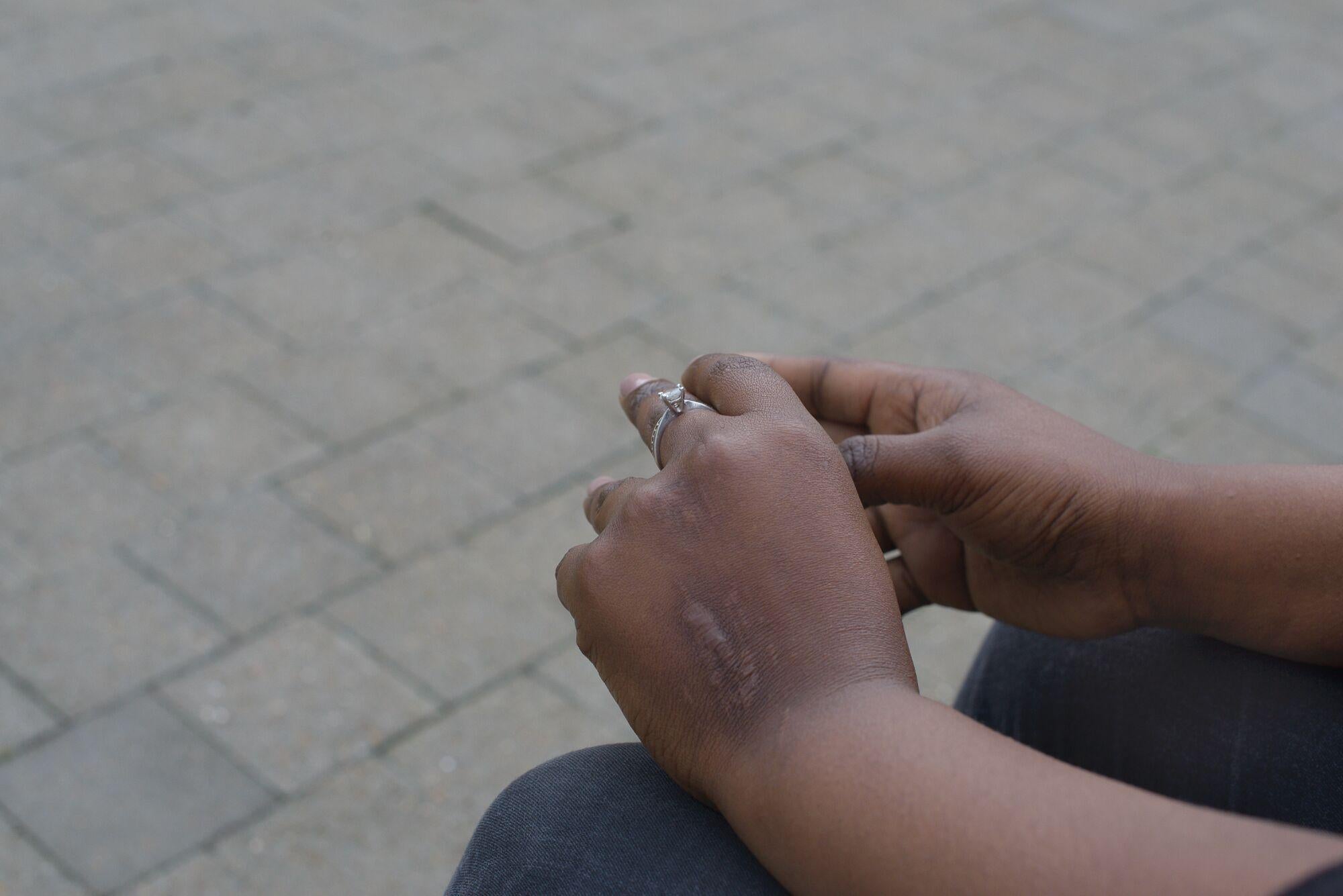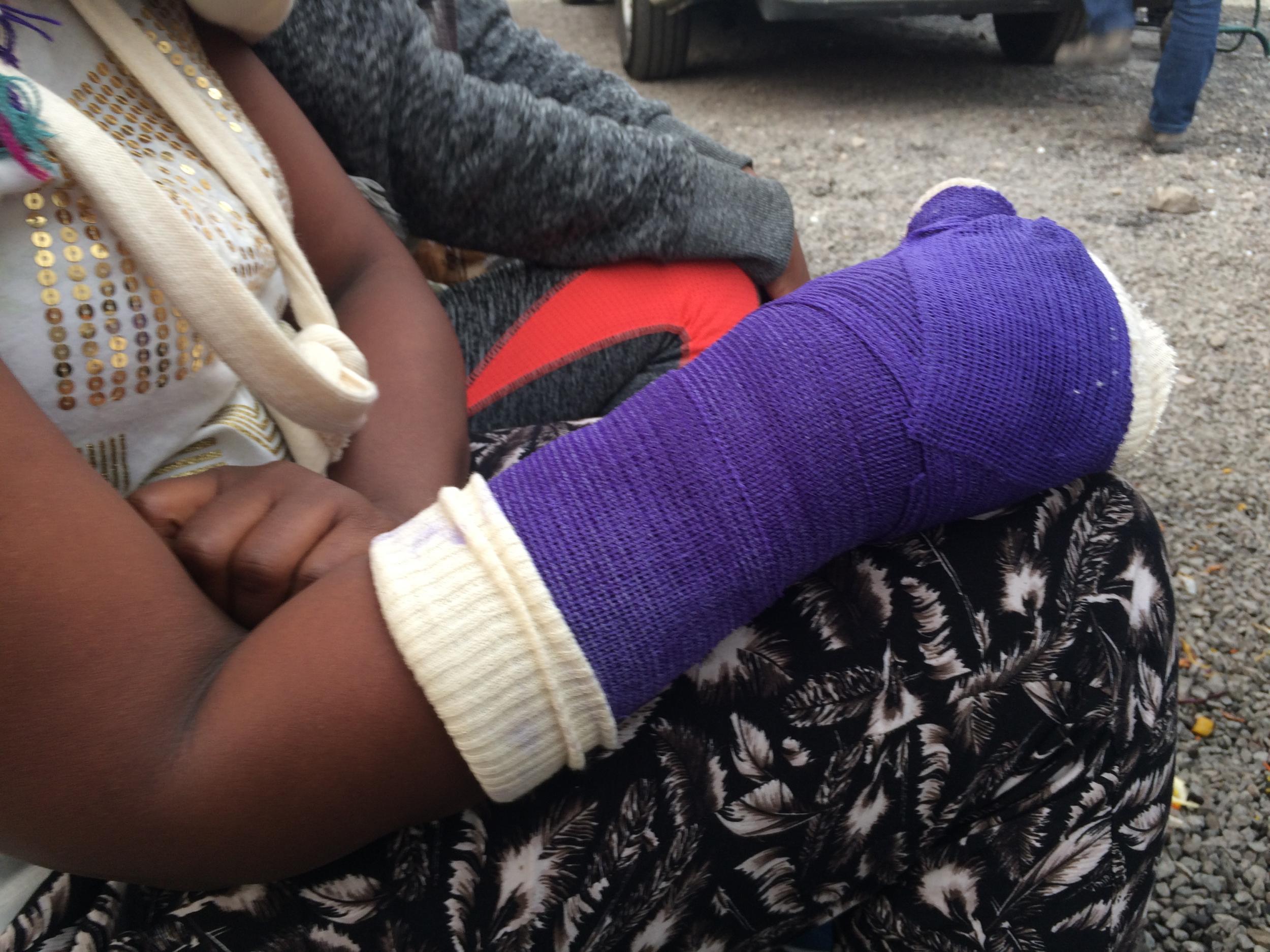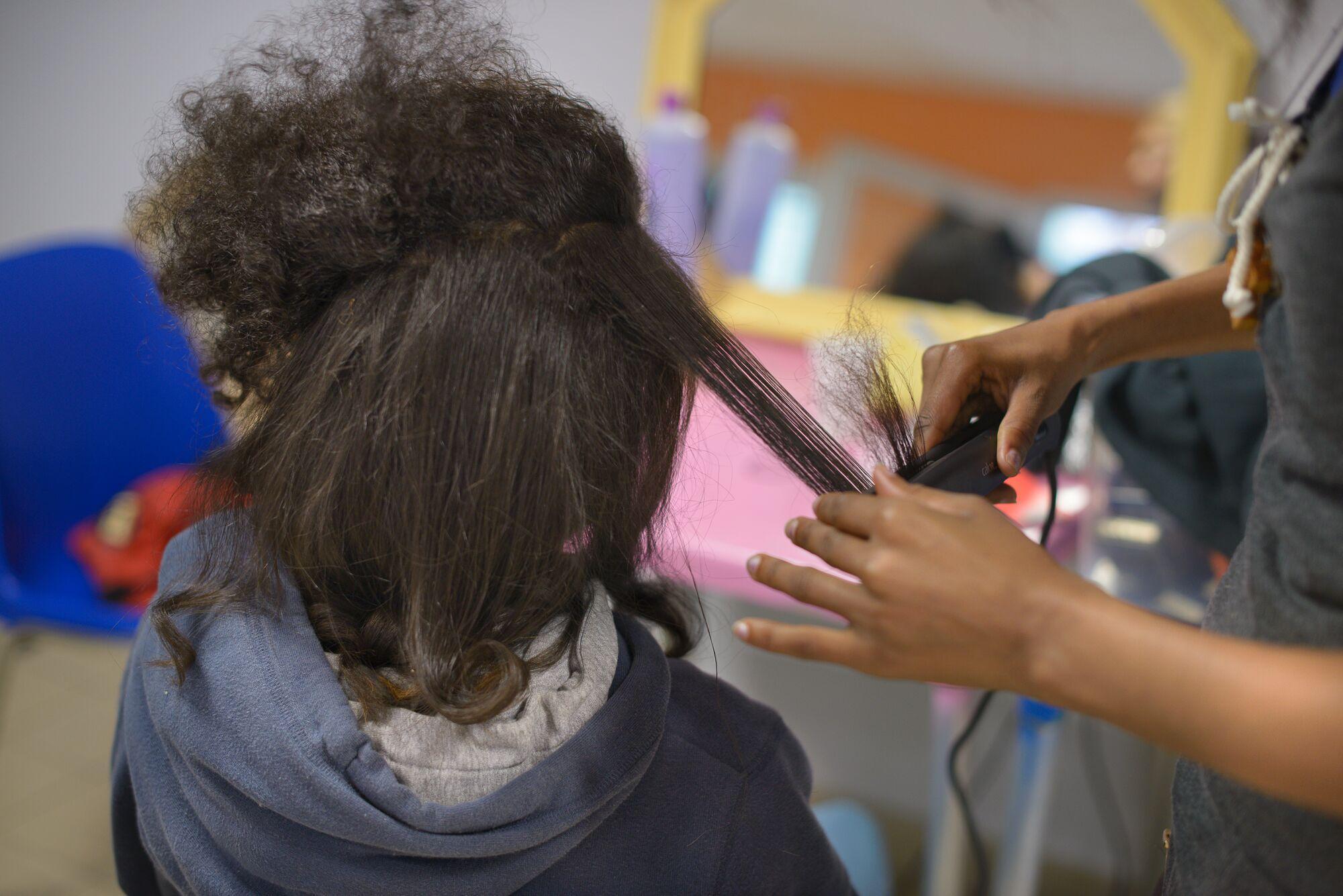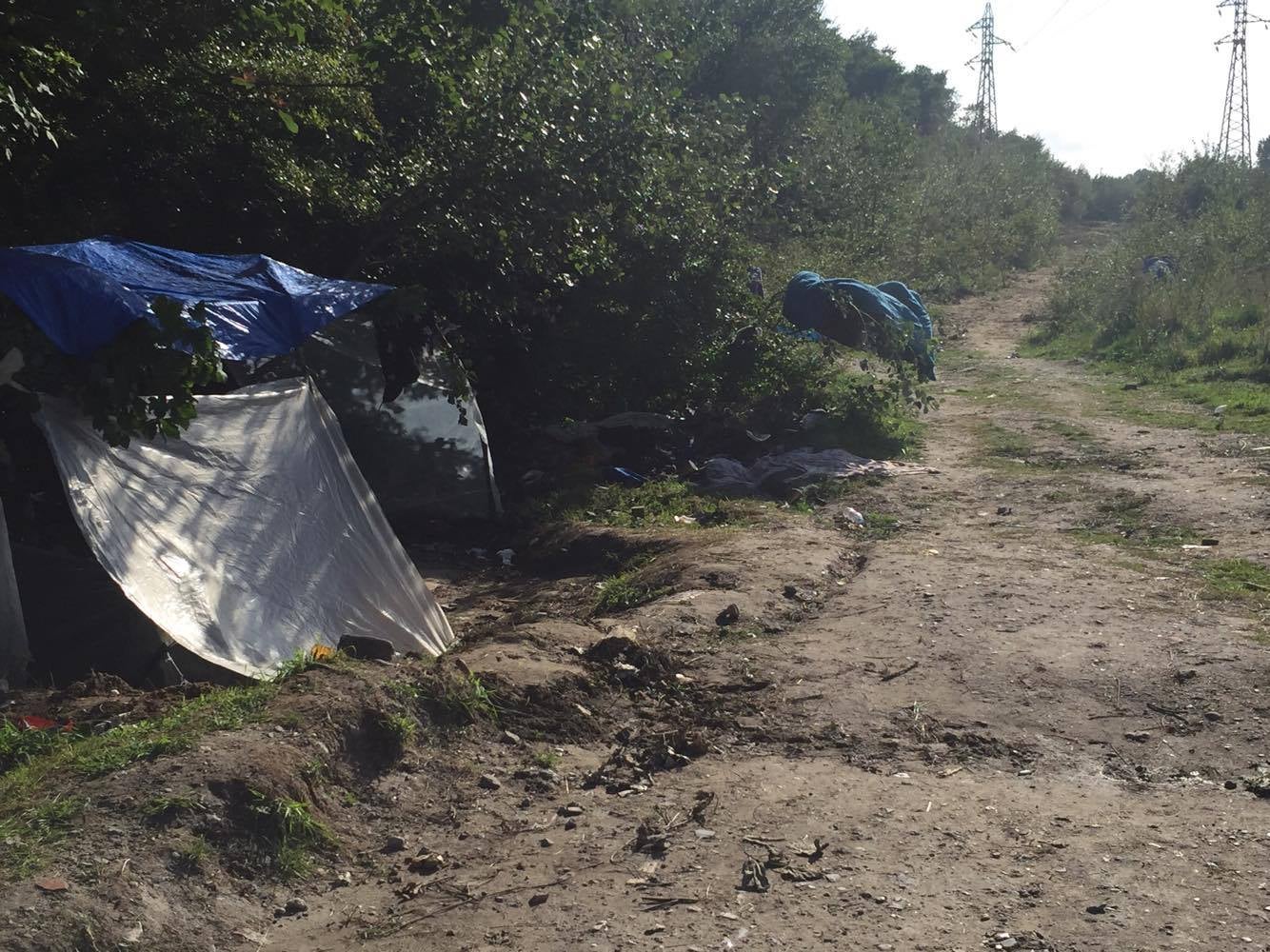Police brutality and rape: The terrifying plight of women and girls in Calais
‘It’s very difficult for women here. We are around a lot of men. Rape does happen,’ says 17-year-old Nesra, signalling to bushes in the woodland where they sleep

Your support helps us to tell the story
From reproductive rights to climate change to Big Tech, The Independent is on the ground when the story is developing. Whether it's investigating the financials of Elon Musk's pro-Trump PAC or producing our latest documentary, 'The A Word', which shines a light on the American women fighting for reproductive rights, we know how important it is to parse out the facts from the messaging.
At such a critical moment in US history, we need reporters on the ground. Your donation allows us to keep sending journalists to speak to both sides of the story.
The Independent is trusted by Americans across the entire political spectrum. And unlike many other quality news outlets, we choose not to lock Americans out of our reporting and analysis with paywalls. We believe quality journalism should be available to everyone, paid for by those who can afford it.
Your support makes all the difference.“He slashed me with something sharp.” Rishal, an Eritrean woman, stares down at her scarred hand. “He raped me too, many times. He locked me in his house for five months.”
The 28-year-old is speaking of a trafficker in Libya, who she was unlucky to encounter on her long and arduous journey to Europe after fleeing political persecution in her home country. She is now in Calais, where she has been for three months, sleeping in the woods alongside hundreds of young men. She hopes to join her younger brother in Britain.
Following a seven-month journey of many near-death and highly traumatic experiences, Rishal has grown tough. Asked about her current situation, she says with determination that “things could be worse”. But she can’t deny the dangers she and other women and girls, some far younger than her, are facing in the wilderness of Calais.
“There is rape here,” she says. “One girl last week was trying to get onto lorries alone and a drunk guy came and raped her. This place is not safe for women.”
There are 20 lone female refugees known to be sleeping rough in the Calais region, but there are probably more. Most are under the age of 30, with several of them just 16 years old. They live there among around 500 young men, so make up a stark minority. During the day, they say they fear nothing, but it’s different at night.
Nesra, aged 17, also from Eritrea, sits next to Rishal eating from a plate of food she has collected from the volunteer-run distribution point. She has her hood up, but a young, pretty face is visible from beneath it. She knows the dangers she and other women face.
“It’s very difficult for women here,” says Nesra, in impressively good English. “We are around a lot of men – Afghans, Iranians, Erirtreans. I came here with my cousin who’s a guy, and he protects me. But rape does happen.” Nesra signals over to bushes in the woodland where they sleep, indicating that they are in constant danger.
Mercy, 28, who arrived in Calais a month ago after fleeing Eritrea for the same reasons as Rishal, also sits with the young women. She cradles her right arm, which is in a purple cast. “It happened last week,” she explains. “I was running from police after they found us in a lorry. I fell over. The police left me there. My friends helped me get to the hospital.”

As well as being at risk of sexual exploitation, the women are at constant peril of aggression from the police. A report commissioned by the French government recently found that alleged abuses against refugees in the region were taking place – and female refugees have not been spared.
Rishal points to a carefully packed three-person tent bag by her feet. She explains that she keeps it with her at all times, because it is their bedroom. “Sometimes the police take it down and break it. On those nights, we sleep in the cold. Then we have to try and get a new one,” she says.
Volunteers in the region are usually able to supply the women with new tents when police tear them down. One French Christian charity, Secours Catholique, also offers a weekly “women’s day”, where the girls are invited to spend the afternoon in the warmth of a building and eat hot food, take showers and restyle their hair.
During one of these days, around a dozen of the young women cluster around a mirror. Some wait for their turn to shower, carefully pulling out their braids to reveal afro curls. Those who have already showered peer at themselves in a mirror. Some apply make-up – lipstick, eyeshadow. They pout and smile as they gaze at their own reflections. It’s been a week since they’ve seen themselves, and they want to feel feminine for a moment before they go back into the wilderness.

Mariam Guerey, who runs the women’s days, says most of them will take their make-up off before they leave. “Here, they feel like women for one or two hours. They will style their hair; they will brush it, do their make-up, paint their nails. They come here, the get made up, they’re beautiful. But before they leave they put their headscarves or hoods back on,” she says.
The weekly meet-up has taken place since the closure of the Jungle, to offer the women a chance to momentarily escape from the precarious situation in which they are currently living. Ms Guerey and the other volunteers are acutely aware of the dangers the women face in the unofficial encampments, sleeping alongside hundreds of male refugees and also facing potential sexual exploitation from people traffickers.
“They don’t speak much about the dangers they face,” says Ms Guerey. “Two women have been raped this year that we know of. In one case, the police called us asking for clothes. They had found her naked after a group of men had tried to rape her. The other was raped – she was 26. During the day, these girls fear nothing. But it’s different in the night. They sleep in the same place as the men. It’s very dangerous.
“Everyone knows these refugees are there, but no one wants to know they are there. They don’t get a moment of respite. There’s nowhere for them to sleep. As soon as they lie down to sleep, it’s demolished. As soon as they find a shelter, it’s demolished.”

One girl, just 16, sits on the side away from the other women. She looks despondent as she blankly stares into nothingness. The coat she wears looks like it’s designed for a 10-year-old, but it fits her tiny frame. She doesn’t speak a lot of English, but is able to communicate that she’s been here for precisely two months and 10 days, and that she came alone.
Even when Rishal offers to translate, the young girl, named Magade, won’t divulge a lot except to say that she feels depressed. In a soft tone that could belong to a toddler, she explains that every day, she feels sadder. “Everything is hard for her here,” says Rishal. “She has no bedroom. She’s had enough.”
Another 16-year-old, Zinash, has a childlike manner that makes her seem far younger. Her love for the colour pink is unquestionable, as she sports a fuchsia padded coat and a baby pink woolly scarf around her head – which she has obviously selected carefully when offered pickings from clothes donations.
Rishal is present. She used to be a hairdresser in Eritrea, and spends most of the afternoon styling the younger girls’ hair. Asked whether she regrets leaving her home country to find herself living in the wasteland of Calais facing constant risk of sexual exploitation and police brutality, she is surprisingly quick with her answer.
“I don’t like it here. But I have freedom; I have a social life. I’m safer and happier here than I was in Eritrea. I will keep trying to get to my brother. That’s plan A. But plan B, if that doesn’t happen, I will try to get asylum in France,” she says.
But as she gently braids one of the women’s hair, she signals towards the 16-year-olds Zinash and Magade. “I’m okay, but they are too young,” she says. “They shouldn’t be here. For me I can protect myself. They can’t. There’s no school for them here. They are in more danger. They need protection.”
Join our commenting forum
Join thought-provoking conversations, follow other Independent readers and see their replies
Comments